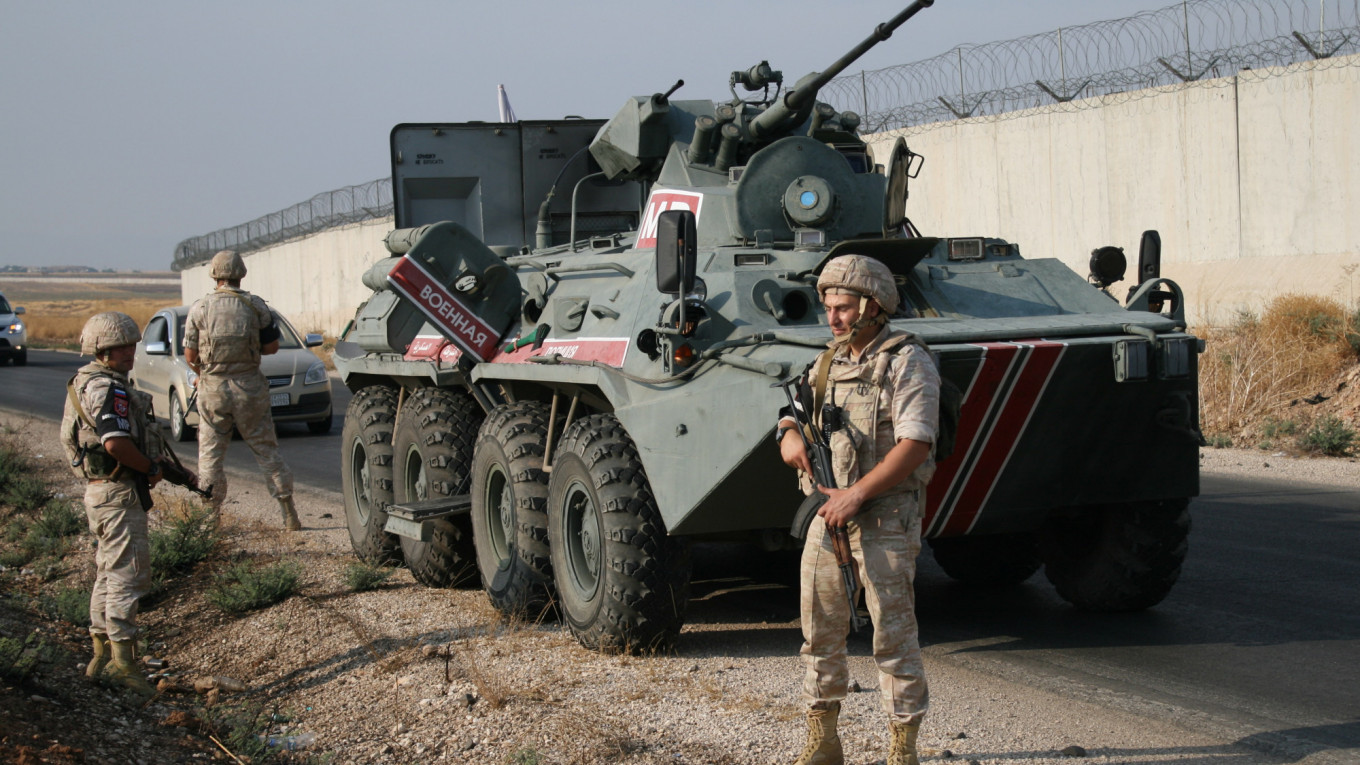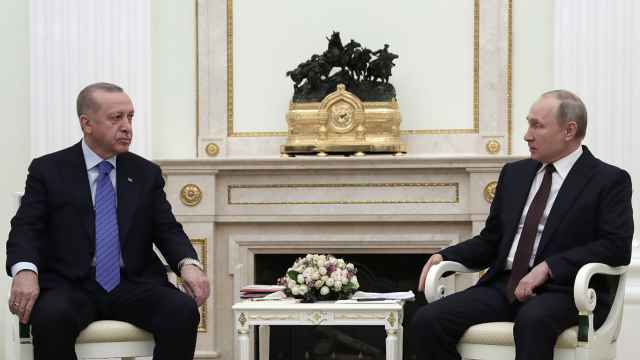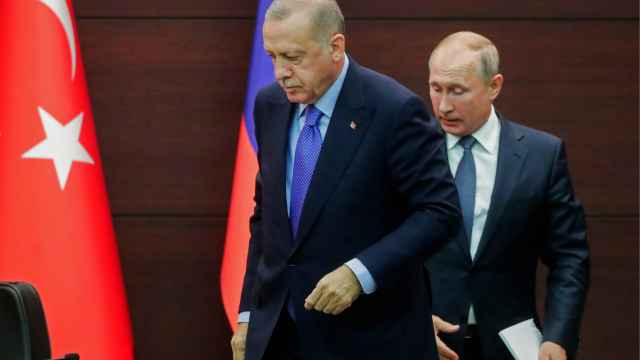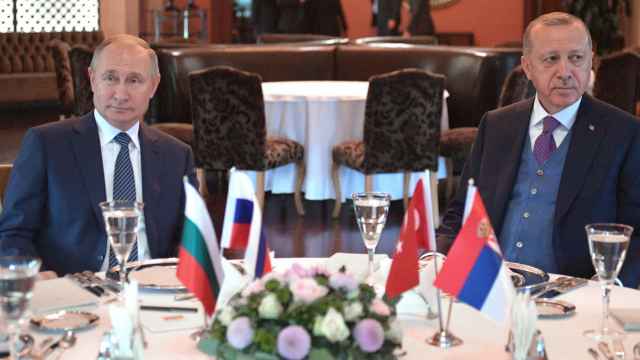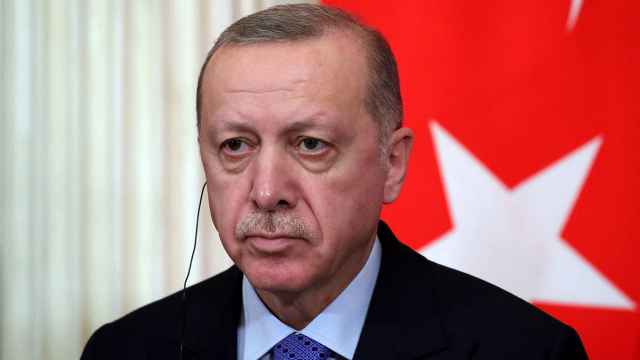Turkey's military will patrol to the north of a security corridor being set up around a highway in northwest Syria's Idlib province and Russian forces will patrol the southern side, Turkish Foreign Minister Mevlut Cavusoglu said on Tuesday.
Agreement on the corridor was part of a ceasefire deal reached by Turkey and Russia last week to halt a conflict in Idlib which displaced nearly a million people in three months and created the risk of a military clash between Turkey and Russia.
The two countries back opposing sides in Syria's nine-year war, with Moscow supporting President Bashar al-Assad and Turkey backing some rebel groups. Several previous deals to end the fighting in Idlib have collapsed.
The deal cemented gains by Russian-backed forces over Turkish-backed rebels but stemmed the advances of Assad's forces and eased Ankara's greatest fear - an influx of more Syrian migrants to join the 3.6 million already in Turkey.
A Russian military delegation arrived in Ankara on Tuesday for talks on details of the accord, Cavusoglu said in an interview with state-owned Anadolu news agency. The specifics of the corridor, stretching 6 kilometers (about 4 miles) north and south of the east-west M4 highway, are due to be agreed within seven days of the deal.
Under the agreement, joint Turkish-Russian patrols were to begin along the highway itself on March 15. It was not clear what would happen to the pocket of rebels which it will create to the south of the highway.
Cavusoglu said Russia would ensure that Syrian government forces do not try to enter the corridor along the M4 and that Turkey-back rebels would remain in place.
He also said there had been a small violation of the ceasefire by Syrian government forces on Monday and that the Russians had sent them a strong warning.
A Message from The Moscow Times:
Dear readers,
We are facing unprecedented challenges. Russia's Prosecutor General's Office has designated The Moscow Times as an "undesirable" organization, criminalizing our work and putting our staff at risk of prosecution. This follows our earlier unjust labeling as a "foreign agent."
These actions are direct attempts to silence independent journalism in Russia. The authorities claim our work "discredits the decisions of the Russian leadership." We see things differently: we strive to provide accurate, unbiased reporting on Russia.
We, the journalists of The Moscow Times, refuse to be silenced. But to continue our work, we need your help.
Your support, no matter how small, makes a world of difference. If you can, please support us monthly starting from just $2. It's quick to set up, and every contribution makes a significant impact.
By supporting The Moscow Times, you're defending open, independent journalism in the face of repression. Thank you for standing with us.
Remind me later.


